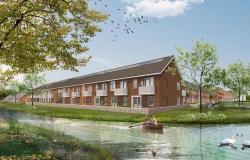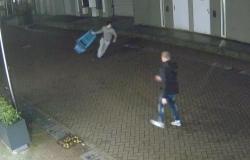
The school advice of almost half of primary school students in Drenthe must be reconsidered. This is shown by research by Trendbureau Drenthe, which was presented in Assen on Wednesday.
The final test in recent years, popularly known as the Cito test, shows that 45 percent of students in group 8 in Drenthe score higher on this test than the provisional advice of the school for secondary education. Friesland is the only province to score worse than Drenthe (49 percent). Groningen is at 44 percent.
Advice not adjusted
Edwin Slijkhuis, Imke Oosting and Jessy Snip conducted research on behalf of Trendbureau Drenthe into the school advice and its reconsiderations and adjustments. The results were presented on Wednesday at the Drenthe Education Day in De Bonte Wever in Assen. They spoke to ten school boards and nineteen schools in the province.
In January, a primary school provides preliminary advice as to what level a student in group 8 is at. This is followed by the national final test, which since this year has been called the progression test. If this final test is higher than the provisional school advice, the school advice must be reconsidered. It is remarkable that the provisional school advice for a child in Drenthe often (45 percent) has to be reconsidered, but that this is only adjusted in one in five cases. How did that happen?
No other schools
“Schools hardly give double school advice, such as havo/vwo. Then it will soon become HAVO or VWO. In rural areas, the choice of school also plays a role in the fact that there is no competition from other secondary schools in the area. In addition, parents in Drenthe have less high expectations of the school advice for their child and primary schools tailor the advice to the wishes of the secondary school,” says Edwin Slijkhuis.
A child is more than a sum of tests, says Slijkhuis. The final test and the student monitoring system at primary school are mainly based on language and arithmetic. But according to the researchers, the child’s work attitude, interest, motivation, independence, homework attitude and problem-solving ability are also important.
Key snapshot
School advice in Drenthe is often not adjusted, partly because teachers consider a test to be a snapshot, according to Slijkhuis: “But a student cannot suddenly do a test very well. Furthermore, parents are convinced that the school’s advice is good and sometimes parents or children do not want to go to another school.”
The researchers recommend that schools include reconsideration and adjustment of the advice in the school choice process. They also recommend describing the characteristics of each child and taking them into account in the choice. Failure to adjust the school advice can have consequences for a child. Edwin Slijkhuis: “Adapted school advice, for example, can give a child with fear of failure self-confidence.”
How are your students doing?
The researchers also advise schools to evaluate their school advice. Slijkhuis: “How are your students doing after three years in secondary education? Do they flow well or do they flow off? There is a lot of data about that. Take advantage of that.”
Only the results of the research were presented at the education day in Assen on Wednesday. The full study will be published in three weeks.
Tags: School advice Drenthes primary school students reconsidered happen





